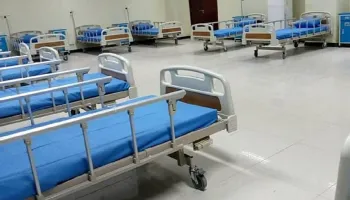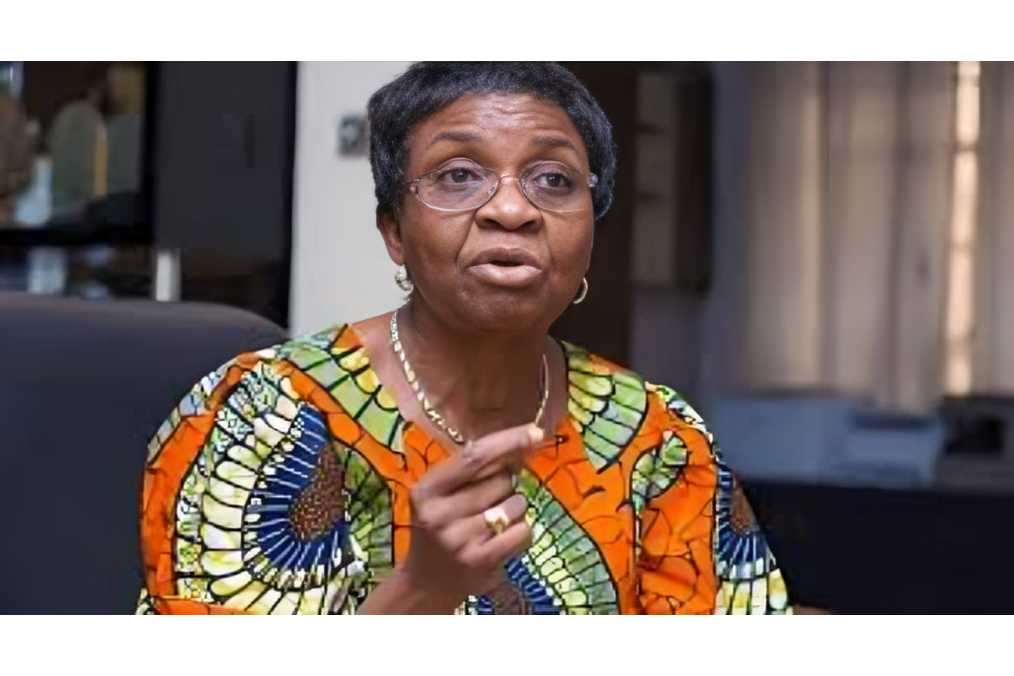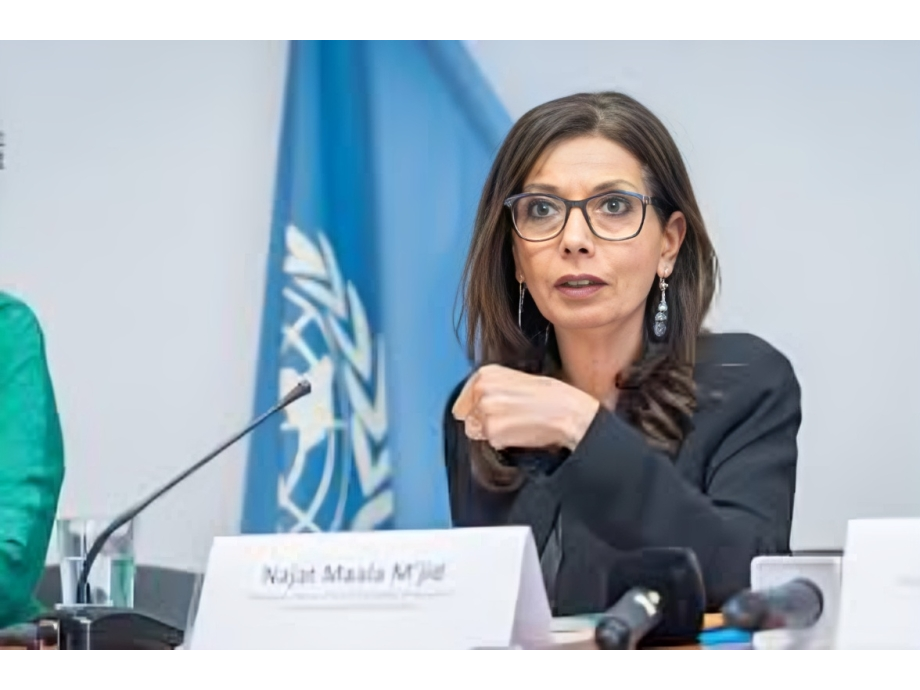Health
Imo, Abia Residents Advocate Measures to Address Healthcare Challenges

Many residents of Imo and Abia, who are worried by the dangers militating against efficient healthcare delivery in the country, have advocated stringent government measures to deal with the phenomenon.
The people spoke in separate interviews in Owerri and Umuahia.
They said that the prevalence of expired and adulterated drugs, wrong laboratory test results, obsolete equipment as well as wrong diagnoses and prescriptions by medical personnel pose serious impediment to access to efficient healthcare services.
In Owerri, the Imo capital, a pharmacist, Mr Joseph Ezeh, urged government and regulatory authorities to step up efforts to curb the activities of quacks in the sector.
Ezeh said that most cases of wrong diagnoses and prescriptions could be traced to the activities of non-professionals, mainly patent medicine dealers “who deceive gullible patients”.
He called for the adoption of appropriate measures to checkmate quackery and its attendant implications in the healthcare system.
A former Chairman of the Association of Medical Laboratory Scientists of Nigeria (AMLSN), Mr Peter Nseabasi, called for more investment in the health sector, especially in terms of equipment and staff welfare and retraining.
Nseabasi said that more investment in the sector would help to address the challenges of wrong diagnoses and their consequences.
A nursing student, Onyinyechi Ifeanyi, said that some medical professionals delegate a lot of responsibilities to student doctors and nurses, leaving patients to the mercy of trainees.
Ifeanyi called for better incentives and welfare for health personnel in order to attract more professionals to the sector.
She said it would encourage division of labour and enhance efficiency.
However, a Medical Doctor at the Federal Medical Centre, Owerri, blamed the rot in the health sector on long years of neglect by successive governments.
The doctor, who spoke on the condition of anonymity, said the rot had led to the loss of passion for the job among the doctors, nurses, and other health workers.
He said that the poor remuneration for health workers and the economic situation in the country had negatively changed the disposition of health workers toward their job.
According to him, many doctors at FMC have their own private hospitals or clinics where they consult outside their main job.
He argued that the development made some doctors to lose focus and in some cases, “in their hurry to move on to their next job, they make mistakes.
“Sometimes, patients are referred to private clinics, where they are given exorbitant bills,” the medical practitioner said.
He also said that the problem had persisted “because patients often failed to make formal complaints to the Medical and Dental Council of Nigeria about their ugly experiences in hospitals”.
A civil servant, Nwakego Ndu, narrated how she was told that she had “bilateral tumours” on both ovaries and booked for immediate surgery by her doctor.
“I was diagnosed with tumours on both my ovaries by my doctor when I went to complain of sudden severe pain on my waist.
“Although he didn’t tell me it was cancer, his sense of urgency implied that I would die if I didn’t have the surgery, immediately.
“My family insisted I get a second opinion, and it turned out I had fibroid and not tumour,” Ndu said.
She said that the experience eroded her trust in the medical profession.
“I want people to know that they have the right to question their diagnosis and seek a second opinion.
“It could make the difference between life and death,” she said.
Also, an oncology patient, Mrs Ifunanya Eze, said that when she was first presented with her symptoms, which included dark-colour urine and white stool, she was advised to do a “water therapy” for two weeks.
According to her, muscle relaxants and pain killers were also prescribed without any tests to determine the reasons for her constant pain.
“It was when I became jaundiced that my doctor reluctantly sent me for a scan after berating me for reading up my symptoms on Google.
“I was diagnosed with pancreatic cancer, and his first reaction was to book me for surgery in his clinic.
“But my current doctors told me that I would have died, if I had gone ahead with the surgery,” she said.
In Abia, the Executive Secretary, State Primary Healthcare Development Agency, Dr Kalu Kalu, said that government had taken decisive steps to prevent cases of wrong diagnoses in Primary Healthcare Centers (PHCs) in the state.
Kalu said that the measures being implemented would focus on improving medical accuracy and service delivery in PHCs.
He said the problem of wrong diagnoses could be tackled through a holistic approach, including solving manpower, equipment, and infrastructure issues.
He said that continuous training and retraining of medical personnel play a vital role in ensuring proper patient history-taking, accurate investigations, and precise diagnoses.
“There should be regular training of health workers to keep them up-to-date on best practices and enhance their skills,” Kalu said.
He further said that Abia’s 2025 budget provided for continuous training of medical staff, a practice that began last year with several capacity-building programmes for frontline health workers.
He also revealed that Abia Government had approved the recruitment of new health workers to strengthen manpower in hospitals and PHCs.
He said that government was reconstructing health centers in the 17 Local Government Areas and would be equipping them with modern medical tools to enhance service delivery.
“The government is not just focused on building health centers but also equipping them with the necessary tools to provide quality healthcare.
“We are committed to ensuring that residents of Abia have easy access to quality healthcare.
“This is in line with the vision of Gov Alex Otti to improve the state’s healthcare system,” he said.
Kalu also said that government’s comprehensive strategy would significantly reduce cases of misdiagnosis, improve patient treatment outcomes, and strengthen the overall healthcare sector in the state.
A former President of the Nigerian Association of Resident Doctors, Dr Emeka Orji, said the rising cases of wrong diagnosis could worsen without urgent intervention in healthcare training, infrastructure, and manpower.
Orji, a Consultant Orthopedic Surgeon, said that inadequate history-taking, faulty diagnostic equipment, unreliable laboratory results, and overworked medical personnel, remain major causes of misdiagnosis.
He said that the overwhelming workload faced by doctors due to the severe shortage of medical personnel in Nigeria needed to be addressed.
Orji said that Nigeria operates far below the World Health Organisation’s recommended doctor-to-patient ratio of 1:600, pointing out that the country operates at a shocking ratio of 1:10,000.
“When a doctor who is supposed to attend to 600 people is catering to 10,000, mistakes are inevitable.
“This workload, combined with inadequate training and poor working conditions, contributes significantly to wrong diagnoses,” he said.
He further criticised the Federal Government’s recent directive for medical schools to double their student intake without increasing infrastructure and faculty.
Orji said that this could lead to the churning out of poorly trained doctors by medical colleges and would consequently lead to increase in medical errors.
He also stressed the need for improved quality control in laboratories to ensure accurate test results.
He said that expired or poor-quality reagents, faulty machines, and lack of strict monitoring often lead to unreliable lab reports.
He said: “This development has forced many physicians to rely more on clinical judgment than laboratory findings.
“That is why tertiary hospitals insist on conducting tests in their own labs, since they do not fully trust external facilities.”
Orji called for urgent government action to stop brain drain in the medical sector, improved healthcare infrastructure, and enforcement of quality control in medical diagnostics.
Also, a mother of three, Mrs Obunwa Ulonna, said that she experienced wrong diagnosis when she had her first child.
Ulonna urged government at all levels to take decisive steps to ensure that medical errors are minimised to safeguard the health of patients.
A Laboratory Scientist, Mrs Ugochi Chukwuneke, said caution in a patient’s clinical examination and diagnosis could curb some cases of misdiagnosis in the nation’s health sector.
Chukwuneke, who works at the Miraculous Medical Laboratories, Umuahia, admitted that there were usually cases where some patients’ clinical test results could be misplaced by some health personnel.
According to her, when patients visit their laboratory, they ensure the patients names are written on specimen collection bottles before collecting their samples, to avert such errors.
“If you interchange their names at the reception, anything you are doing inside is nonsense because you are likely to give the patient wrong result,” she said.
Chukwuneke, who shared her experiences, said that other factors might also contribute to wrong diagnosis.
She said: “I had done a test where a man was screened as HIV positive somewhere, but I ran a similar test and discovered he was negative.
“I asked him to go to Federal Medical Centre for a confirmatory test because other ailments like tuberculosis or hypertitis might interfer to give a false positive HIV result.
“He did the confirmatory test and was happy eventually.”
Also, an Umuahia-based laboratory technician and microbiologist, Mrs Ojingwa Anya, expressed concern about the rot in the healthcare sector, saying that it has caused much havoc to society.
Anya, who was saddened by the menace of expired drugs and other negligence in the sector, urged the regulatory authorities to intensify efforts in the fight against the unwholesome practices in order to save lives.
“We in the healthcare sector need to be very careful in whatever we do to avoid sending people to untimely grave.
“Fresh medical graduates need to be tutored by the older and experienced ones; they need to be properly guided,” she said. (NAN)
General News
NAFDAC Announces WHO Prequalification of Locally Made Syringe

The National Agency for Food and Drug Administration and Control (NAFDAC), says a 0.5ml Auto Disable Syringe produced by Afrimedical Manufacturing and Supplies Ltd, has achieved World Health Organisation (WHO) prequalification.
NAFDAC Director-General, Prof. Mojisola Adeyeye, disclosed this at a news conference on Wednesday in Lagos, describing it as a significant milestone for Nigeria and the West and Central Africa region.
According to Adeyeye, Afrimedical, located in Ogun, is the first indigenous syringe manufacturer in Nigeria—and the entire West and Central Africa—to receive WHO prequalification for its syringes.
She noted that the achievement followed a rigorous process, substantial investment, and technical support and guidance provided by NAFDAC.
“This milestone aligns with the agenda of the President Bola Tinubu-led administration to promote local production of medical products,” she said.
“It is with great joy that I announce that, after a rigorous process, the WHO has prequalified Afrimedical’s 0.5ml AD Syringes.
“They are now eligible for national and international procurement by relevant agencies and organisations.”
Adeyeye added that Afrimedical was now the first manufacturer in West Africa to be recognised by WHO as operating at an acceptable level of compliance with Good Manufacturing Practice (GMP) requirements.
She emphasised that NAFDAC, in its drive to become a world-class regulator, embraced global best practices in all aspects of medical product regulation.
In 2023, only three out of seven indigenous syringe manufacturers in Nigeria were functional, collectively operating at less than 20 per cent of their combined installed capacity of 2.5 billion syringes per year, she revealed.
Adeyeye highlighted NAFDAC’s “5+5” policy, introduced in 2019, which restricted the importation of medicines and devices that could be produced locally.
“Products with five-year registration validity that can be manufactured in Nigeria will be granted one final five-year renewal, after which importation will no longer be allowed,” she explained.
Following NAFDAC’s attainment of WHO Maturity Level 3 in 2023, the agency began engaging international procurement bodies, such as UNICEF’s supply division in Copenhagen, to promote patronage of locally manufactured medical products, including syringes.
The Director-General urged other indigenous manufacturers to emulate Afrimedical’s achievement through collaboration and alignment with NAFDAC’s regulatory goals.
Also speaking at the event, Afrimedical General Manager, Mr Gabi Al-Aridi, described the WHO prequalification as a major milestone for the company, NAFDAC, and Nigeria as a whole.
Al-Aridi praised the federal government’s efforts to support local production and stated that “Afrimedical currently produces about 1.8 billion syringes annually.”
He reaffirmed the company’s commitment to high-quality, locally made medical products and encouraged Nigerians to embrace them to help boost the nation’s economy.
The National Agency for Food and Drug Administration and Control (NAFDAC), says a medical device, 0.5ml Auto Disable Syringe produced by Afrimedical Manufacturing and Supplies Ltd, has achieved WHO Prequalification.
Prof. Mojisola Adeyeye, the Director-General of NAFDAC disclosed this at a news conference in Lagos on Wednesday.
Adeyeye said the company located in Ogun State is the first st local manufacturer of syringes in Nigeria and also in West and Central Africa region to achieve the laudable feat.
She said the company was able to achieve the feat after a thorough arduous process, heavy investment and technical support and guardians by NAFDAC.
The D-G noted that the feat also align with the agenda of the President Bola Tinubu led administration to support local production of medical products in the country.
“it is with great joy and delight that I have the privilege of informing our stakeholders and the public that, after a rigorous process and a lot of investment by Afrimedical, the WHO has prequalified 0.5ml AD Syringes.
“The syringes have now been added to the WHO list of prequalified syringes and are therefore eligible for national and international procurement by relevant agencies and organisations.
“This is undoubtedly the outcome of meaningful collaboration between the company and NAFDAC, and the systematic implementation of NAFDAC policies over the years.
“Afrimedical has become the first manufacturer of syringes to be recognised by the WHO as operating at an acceptable level of compliance with GMP requirements in West Africa,” he said.
Adeyeye said in line with NAFDAC vision to be a world class regulator that ensures only quality and safe regulated products are used in the country, the agency embraced global best practices in all its regulatory functions of medical products.
She added that only three out of the seven indigenous syringe manufacturer were functional in the country in 2023 and they have a combine installed capacity of over 2.5 billion syringes per annum, while functioning below 20 per cent capacity.
She said:”The Agency started laying a foundational policy in 2019 for local manufacturing of medicines such as 5+5 regulatory.
“This directive which ensures that products that were previously imported with five-year registration validity and that can be manufactured in Nigeria are given the last renewal of five years and thereafter prevented from being imported.
“In 2023, after the attainment of WHO Maturity Level 3, NAFDAC engaged UNICEF supply chain in Copenhagen and at a workshop in Lagos to patronize locally manufactured medical products including syringes.
The Director-General, however, encourage other well-meaning local manufacturers of medical products to emulate this feat through harmonization of collective aspiration and synergy of effort with NAFDAC’s relevant directorates.
Speaking also, the General Manager of Afrimedical Manufacturing and Supplies Limited, Mr. Gabi Al-Aridi described the feat as a major milestone for the company, NAFDAC and Nigeria at large.
Al-Aridi, who commended the federal government for promoting local production of pharmaceutical products said the company producing about 1.8 billion syringes per annum.
He reiterated the company dedication to providing high-quality, locally manufactured syringes, while urging Nigerians to embraced locally made syringes to boost the nation’s economy.(NAN)
Health
UN lauds FCT’s Multisector Approach to Ending SGBV

The United Nations has commended the Federal Capital Territory Administration (FCTA) for its multisectoral approach to ending all forms of Sexual and Gender-Based Violence (SGBV).
Dr Najat M’jid, Special Representative of the UN Secretary-General on Violence against Children, gave the commendation in Abuja on Tuesday, when she visited the Awyetu Sexual Assault Referral Centre (SARC).
The SARC, located at Bwari General Hospital was established in 2020 by the British Council on behalf of the European Union under its Rule of Law and Anticorruption (ROLAC) Programme.
The centre was established to provide comprehensive medical, psychological, and legal support to survivors of sexual violence, with a special focus on children and vulnerable populations.
M’jid expressed excitement with the synergy among the different sectors working together to eliminate all forms of SGBV in the FCT.
“I am happy today because of what I have seen – many ministries are onboard supporting the fight against SGBV.
“This is because the problem is not only the problem of FCT Women Affairs; the issues are also in health, in Justice, and in communities,” she said.
She said that she was in the country to understand what was being done to address SGBV, “and how together, we can move forward”.
She added that Nigeria was one of the paths finding countries on ending violence against children.
She also said that the country was very involved and very committed to end all forms of violence against children and had made pledges.
“Visit to Nigeria is to see how we can move ahead, how we can support and how we can achieve set targets from the many commitments the country has made.
“We want to see how we can translate those commitments into concrete services that will prevent and address all forms of violence against children,” she said.
The special representative, however, stressed the need to address the drivers of SGBV, detect and respond to reported cases and ensure that it was not happening again.
She further said: “It is really important to make sure that the victims can be heard, be considered and be seen as victims and make the perpetrators accountable.
“There is also the need to stop justifying violence against children and women through poverty and through social norms”.
Earlier, the Mandate Secretary, FCT Women Affairs Secretariat, Mrs Adebayo Benjamins-Laniyi, pointed out that a multisectoral problem required a multisectoral approach to tackle it.
Benjamins-Laniyi said that a stronger synergy was required among critical stakeholders to deliver critical intervention from the local to the state level, in line with global best practices.
She described M’jid visit as a “positive disruption” that sparked a desire to strengthen partnership and collaboration among the different stakeholders to do more for women and children in the FCT.
The mandate secretary said that the FCT Administration had rolled out plans to reposition the SARC centre to provide quality integrated services to SGBV survivors.
Also, the Mandate Secretary, Health Services and Environment Secretariat, Dr Adedolapo Fasawe, said that M’jid’s visit reaffirmed the global resolve to protect children from violence.
Fasawe, who was represented by the Permanent Secretary in the secretariat, Dr Baba-Gana Adam, added that the visit was very encouraging.
She added that the visit also reinforced the role of sexual assault centre in ensuring access to care, justice, and dignity for survivors of sexual and gender-based violence.
She disclosed that the hospital had continued to sustain the provision of services at the centre when the ROLAC support ended, but amidst numerous challenges.
The mandate secretary, identified some of the challenges as funding for essential drugs and kits, staff training and incentives, inconsistent collaboration with law enforcements, and absence of prevention and community awareness programmes.
Foreign News
WHO: Social Factors Outweigh Genetics In Shaping Global Health

Housing, income, education, and other social conditions have a greater impact on health than genetics or the quality of health-care systems, according to a new World Health Organisation (WHO) study.
The research, set to be presented and live-streamed from Geneva on Tuesday, found that social determinants such as poverty, discrimination, and lack of access to resources account for more than 50 per cent of health outcomes.
These “social determinants of health equity” include the environments in which people are born, live, work, and age, as well as their access to power, money, and opportunity.
“These factors create unjust and avoidable health gaps,” said WHO Director-General Dr Tedros Adhanom Ghebreyesus.
“Billions of people face higher risks of illness and death simply because of the conditions they’re born into or the social groups they belong to.”
Tedros emphasised that much of the global disease and mortality burden was preventable, calling health inequity a result of political and social decisions that global leaders had the power to change


















